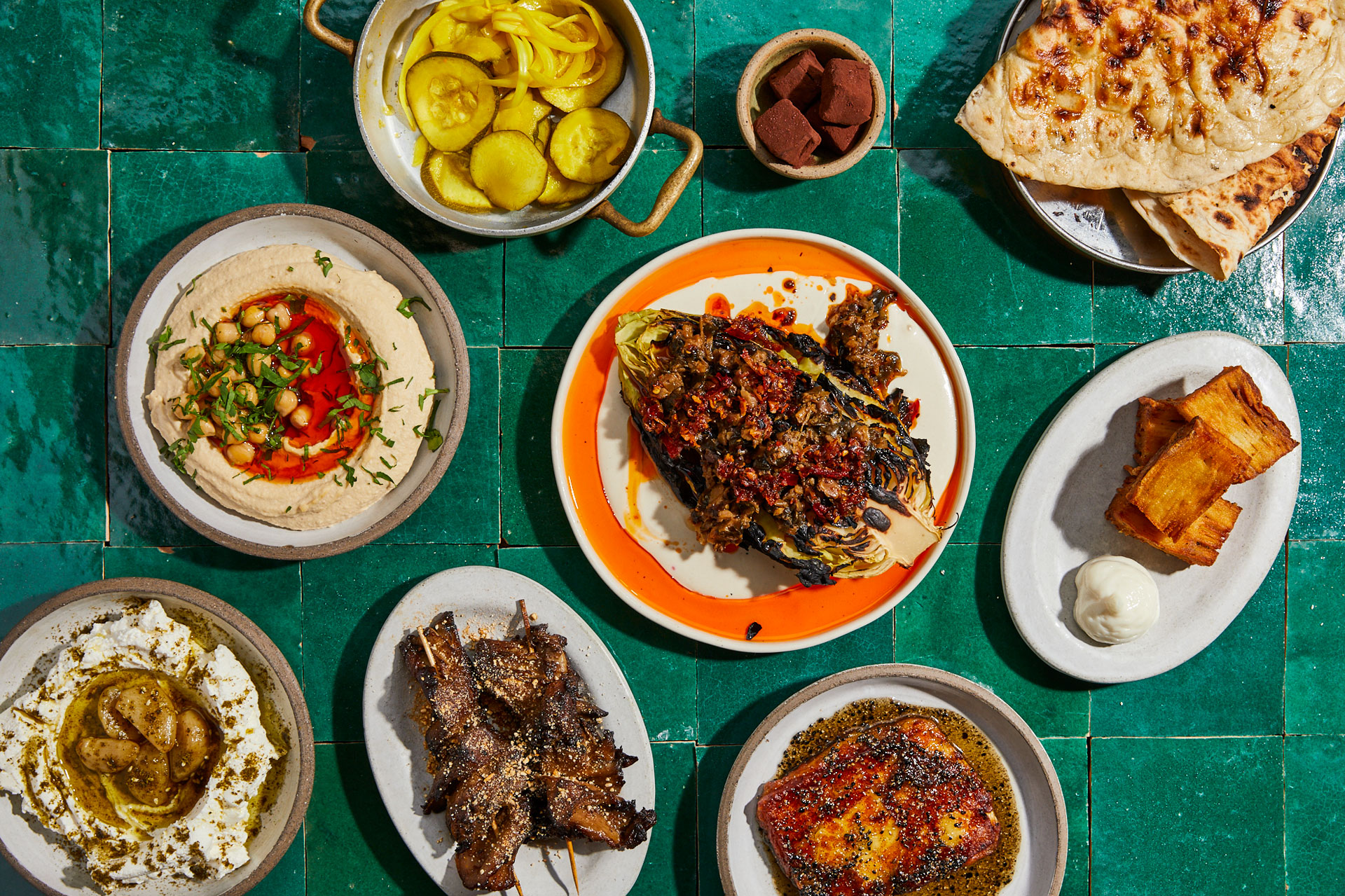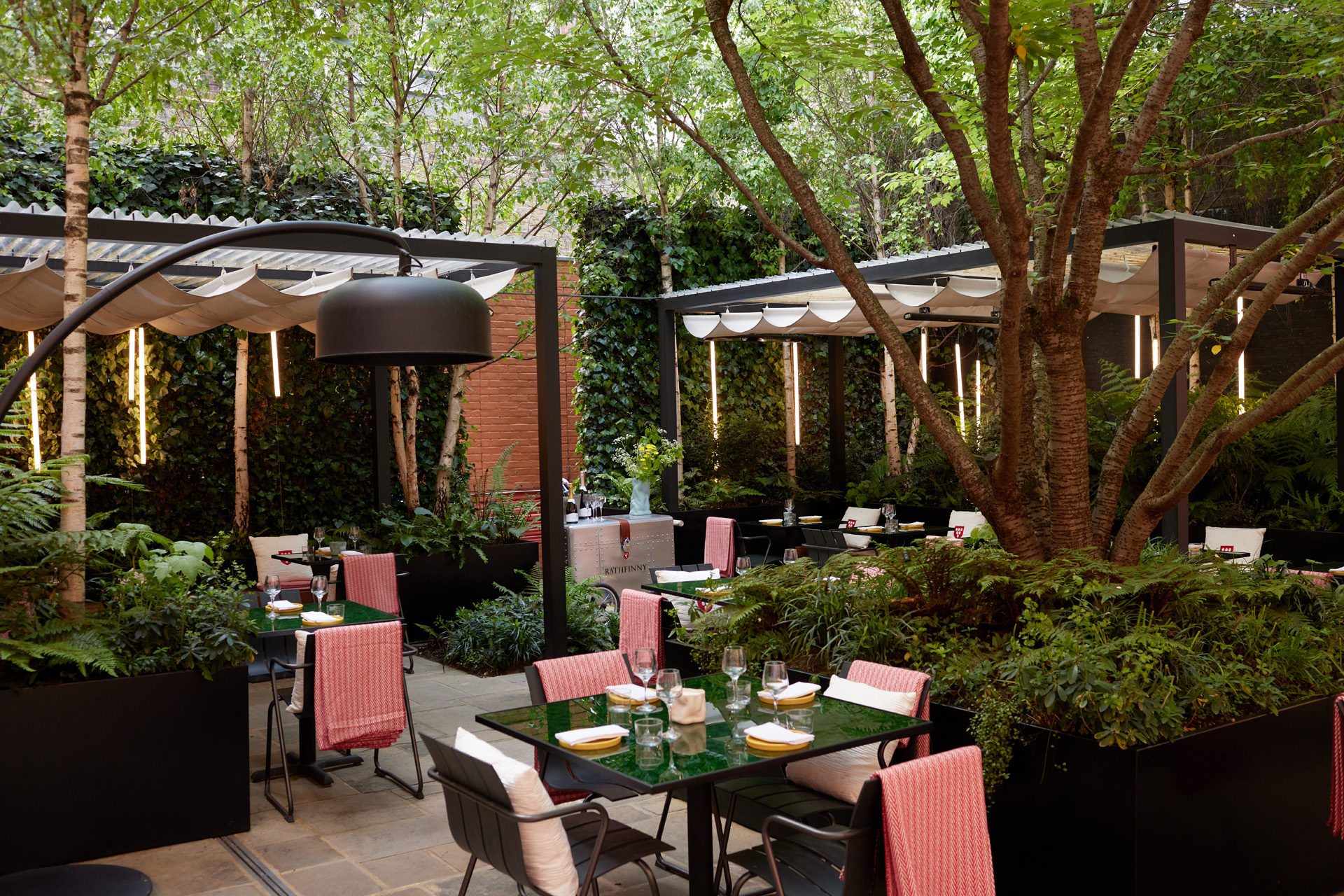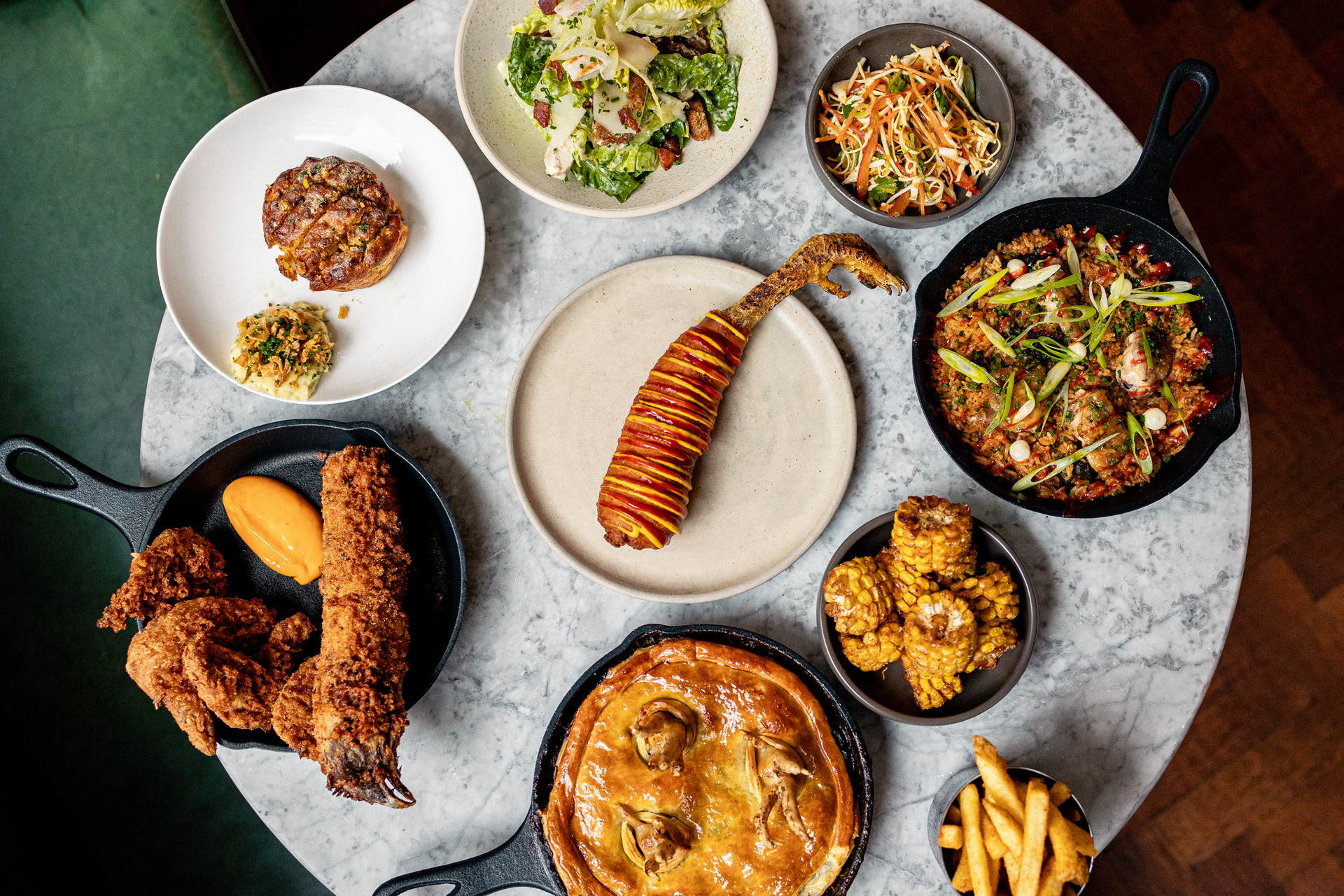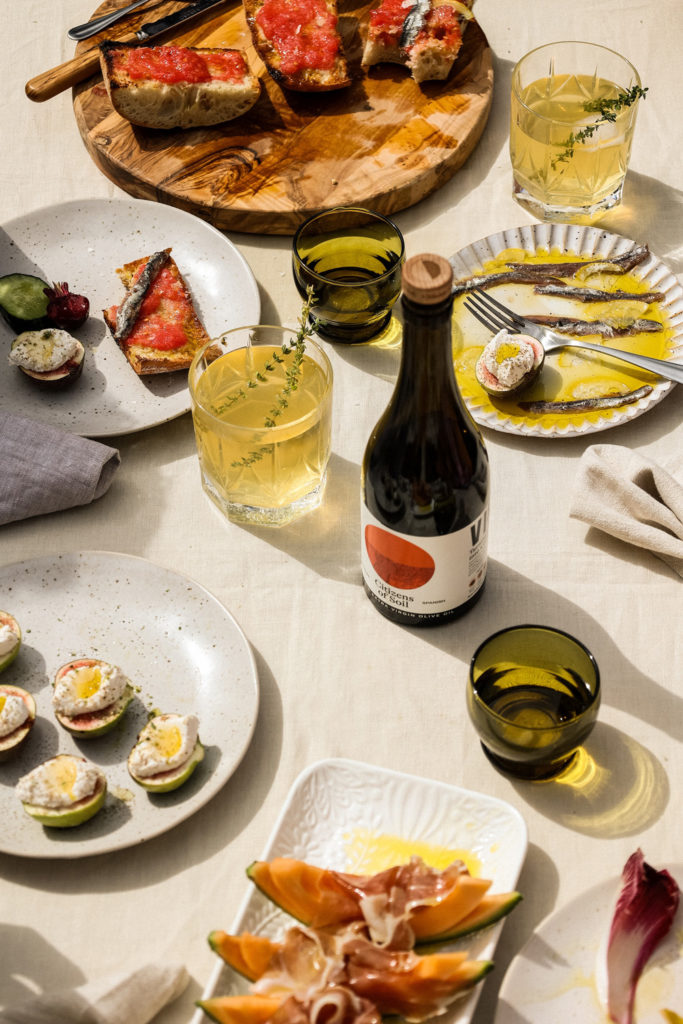6 Restaurant Trends Set To Be Big In 2024
By
2 years ago
Here's what dining out will look like next year

Whether it’s creating DIY kits during the pandemic or exploring ways to cut their carbon footprint, restaurants are constantly evolving to meet modern needs. 2023 has been all about solo dining, natural wine and spotlighting interesting cuisines, but what will be big next year? Booking platform Resy has outlined the key restaurant trends for 2024, using insight from both chefs and diners. From off-piste ingredients to increasingly reactive menus and food inspiring fashion, here’s what’s likely to be hot in the restaurant world over the coming months.
6 Restaurant Trends Set To Be Big In 2024

Rathfinny x Native at Browns
Rewriting The Rulebook
It has been a turbulent few years for hospitality, with significant difficulties posed by Covid, supply chain issues and the cost-of-living crisis. But despite the challenges, all this has encouraged both restaurateurs and customers to broaden their horizons when it comes to what’s expected from restaurants. We’ve seen a rise in nomadic brands, with names like Native and TĀ TĀ Eatery rising to popularity through residencies, pop-ups and supper clubs. More and more venues are hosting chef collaborations and events too, helped by Ravneet Gill’s new platform Countertalk Spaces, which matches chefs with underutilized spaces in London.
‘We wouldn’t have had a site if it wasn’t for Browns and their open, collaborative approach to dining,’ says Native’s Ivan Tisdall-Downes. ‘I think the next twelve months will see a number of new nomadic ventures, as chefs get more creative and experiential in their offerings and existing venues look to diversify their spaces to help keep the industry alive.’
The Small Plates Revolution
Joeys of the world, beware: the sharing food craze is going nowhere. Small plates have been in vogue for a number of years now, and the restaurant trend shows no sign of slowing in 2024, with buzzy new eateries constantly joining the game. Not only does this make for more convivial dining, it means restaurants can cater to a wider variety of budgets – as Barrafina’s executive chef Antonio Gonzalez says: ‘We have such a broad range of customers with varying budgets, our smaller plates mean we can cater to everybody’s needs – whether they order a couple for lunch or several to share for dinner.’
The question is: are mains on the out? Mangal’s head chef Sertaç Dirik thinks so. ‘We’ve increased the number of medium sized plates at Mangal 2, and I think the number of mains on menus will continue to reduce to make space for the sharing revolution.’

FOWL
Obscure Ingredients
Today’s diners are more educated than ever, says Resy – we have ‘discerning palates’ and look for ‘quality, transparency and uniqueness’ in our meals. TV shows like The Bear and Boiling Point have put chefs on the stage, raising intrigue and upping the game. In other words, the bar is high, which means restaurants are looking for ways to stand out – often by adding obscure items to their menus. Ox tongue is one of the most popular dishes at Quo Vadis, for instance, and F.K.A. Black Axe Mangal (AKA one of the coolest culinary spots in town) serves offal.
This goes hand in hand with the nose-to-tail movement, which has expanded its wings (pun intended) in the past year. London welcomed its first fin-to-gill restaurant, Kima in Marylebone, and Fallow’s new eco pop-up Fowl offers a ‘beak to feet’ experience, with the menu including Le Grand Coq pie, made using all parts of the bird (diners have to pull the cooked head out themselves). It won’t be for everyone, but it seems we’re getting more adventurous as a nation: according to Resy, one in four of us is keen to try more unusual menu items.
Reactive Menus
Of course climate change will continue to dominate the food conversation in 2024. Rising temperatures are already affecting agriculture, dictating what produce is available when, and this will have an increasing impact on restaurant menus. For instance, this year’s October heatwave meant more red tomatoes, and high temperatures in 2022 resulted in a shorter yet sweeter apple crop for 2023.
Most restaurants have seasonal menus now, but they’ll have to be more adaptive in 2024, with daily changing dishes becoming the norm. Quo Vadis chef Jeremy Lee predicts: ‘The lines between the four seasons will continue to blur and become more fluid as time goes by. As a result, I expect we’ll see daily menus become more prominent across the capital – they just need astute chefs and astute managers to create them!’

Rosewood London x Anya Hindmarch
Food Inspiring The Catwalks
We’re seeing a growing number of collaborations between the food and the fashion spheres – with both industries inspiring one another. Each time Fashion Week arrives in London, a flurry of restaurants create themed dishes and drinks, such as The Berkeley’s Prêt-à-Portea, a fun twist on afternoon tea which includes catwalk-inspired couture cakes. And earlier this autumn, Rosewood London marked its anniversary by collaborating with designer Anya Hindmarch, who brought her signature eye motif to the restaurant’s famed pies.
On the other side, lots of this year’s fashion shows were staged as dinner parties and feasts. As Sertaç Dirik says: ‘From fashion to footwear, there’s no denying 2023 was the year for restaurant partnerships. Next year, I think things will elevate and we’ll see more unexpected, special events than ever before… using restaurants as venues to bring the immersive experience.’
Regenerative Dining
Regenerative is the word du jour across multiple industries, but it’s particularly important in the food world. The movement will continue to gain traction in 2024, with younger generations leaning towards restaurants which use ingredients from sustainable farms. Resy believes eateries can make a positive difference when it comes to the UK’s biodiversity, opting to work with smaller suppliers and incorporating foraged ingredients onto their menus. ‘Whilst the sustainable efforts of the industry are recognised and appreciated, it’s not enough to fix the food chain,’ says Native’s Imogen Davis. ‘The next step is helping to re-wild our planet by re-imagining our plates and giving more back to the earth than we take.’



